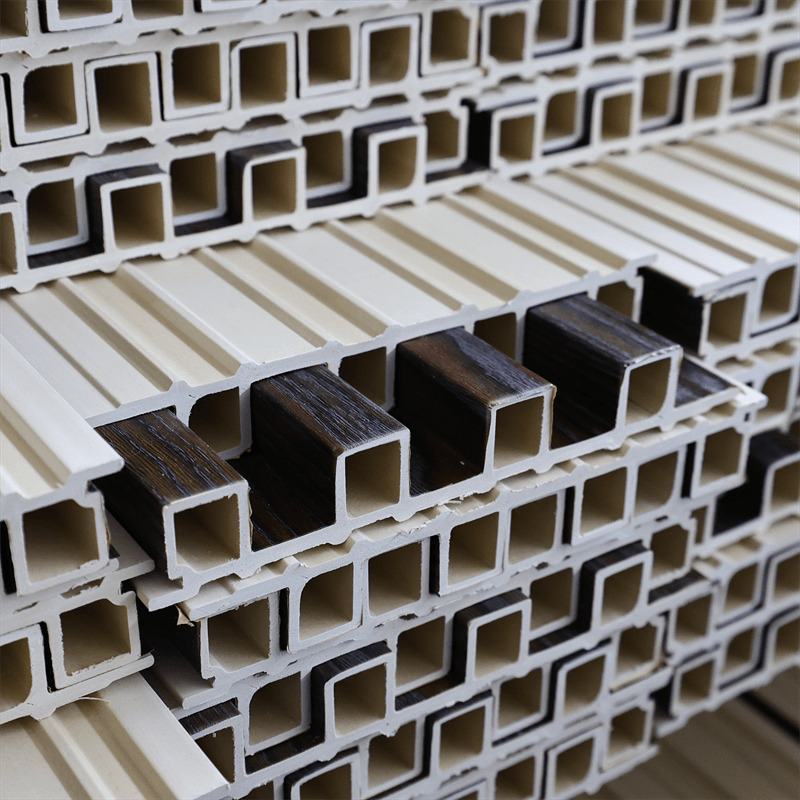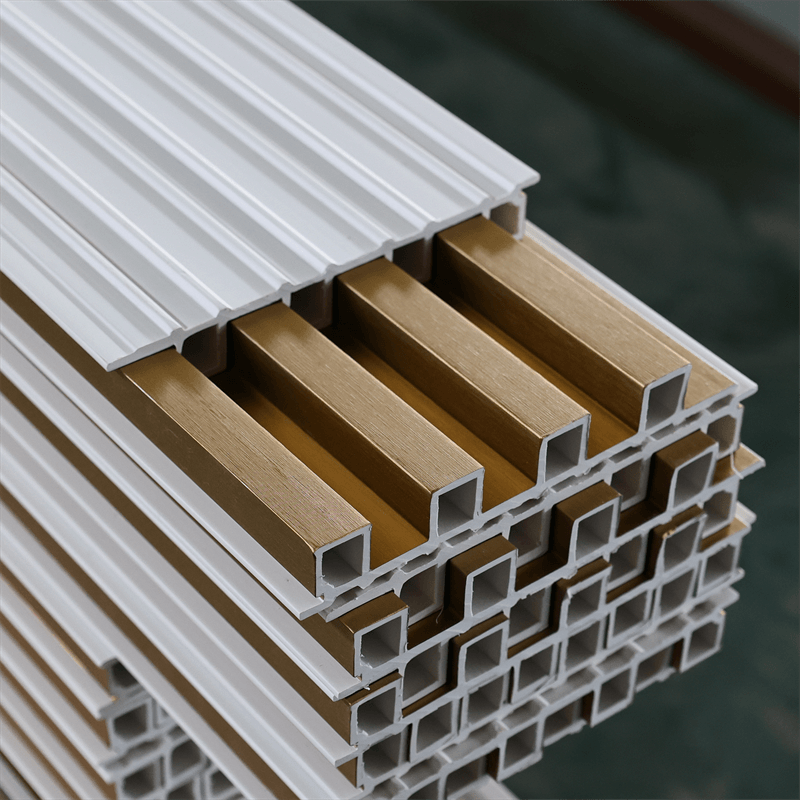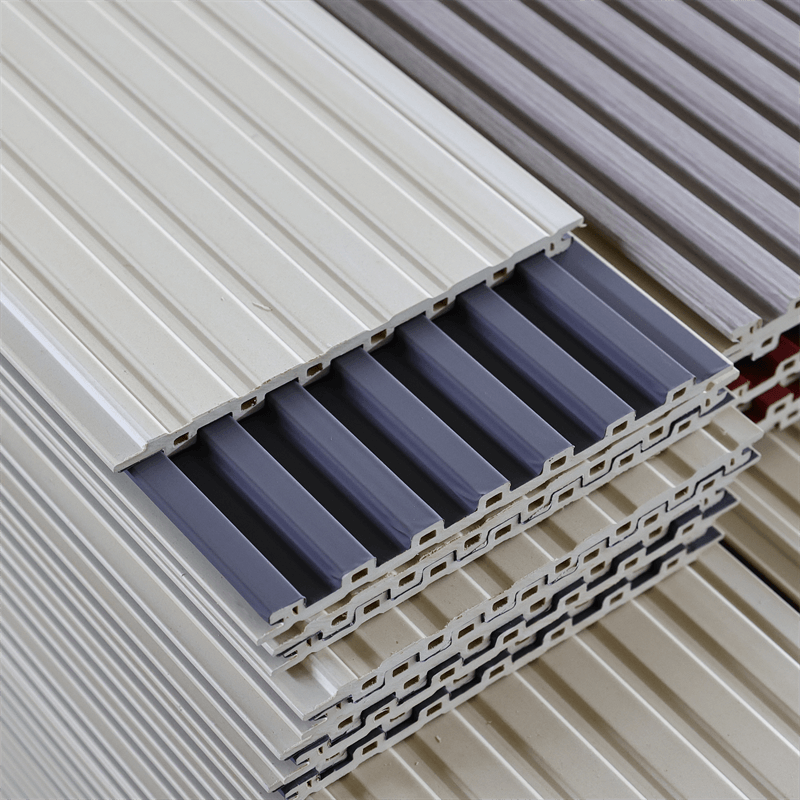Indoor air quality is a critical factor in maintaining a healthy and comfortable living or working environment.
Poor indoor air quality can lead to various health issues, such as respiratory problems, allergies, and asthma.
WPC (Wood-Plastic Composite) wall panels offer a solution for improving indoor air quality while enhancing the aesthetics of interior spaces.
This essay explores the benefits of using WPC wall panels to improve indoor air quality, focusing on their low emission levels, mold and moisture resistance, ease of cleaning, and contribution to a healthier living or working environment.

I. Low Emission Levels for Clean Indoor Air:
- Low VOC Emissions: Volatile Organic Compounds (VOCs) are chemicals that can be released from various building materials and furnishings, contributing to indoor air pollution. WPC wall panels are manufactured using low VOC-emitting materials, resulting in minimal off-gassing and a healthier indoor environment. By choosing WPC panels, the levels of harmful VOCs in the air can be significantly reduced, creating a cleaner and safer atmosphere.
- Formaldehyde-Free Construction: Formaldehyde is a common indoor air pollutant that can be emitted from certain construction materials. Unlike some traditional wall coverings, WPC panels are formaldehyde-free, ensuring that no harmful emissions are released into the indoor air. This absence of formaldehyde in WPC panels further contributes to improved indoor air quality and protects the health of occupants.
II. Mold and Moisture Resistance for Healthy Spaces:
- Moisture-Resistant Properties: Excess moisture in indoor spaces can lead to the growth of mold, mildew, and other harmful microorganisms. WPC wall panels have inherent moisture-resistant properties, making them an excellent choice for areas prone to moisture, such as bathrooms, kitchens, and basements. The moisture resistance of WPC panels helps prevent the accumulation of mold and maintains a healthier indoor environment.
- Anti-Microbial Additives: Some WPC wall panels are formulated with anti-microbial additives, further enhancing their resistance to mold and bacteria. These additives inhibit the growth of harmful microorganisms, ensuring that the indoor surfaces remain hygienic and free from potentially harmful contaminants. The anti-microbial properties of WPC panels contribute to a healthier living or working environment by reducing the risk of mold-related allergies and respiratory problems.
III. Ease of Cleaning and Maintenance:
- Smooth and Non-Porous Surface: WPC wall panels have a smooth and non-porous surface, which makes them easy to clean and maintain. Unlike traditional wall coverings, such as wallpaper or textured paints, WPC panels do not have small crevices or porous surfaces where dirt, dust, or allergens can accumulate. Regular cleaning with mild soap and water is sufficient to keep the panels looking fresh and to remove any potential allergens or pollutants.
- Resistance to Stains and Allergens: The stain-resistant nature of WPC panels contributes to their ease of maintenance and improves indoor air quality. The panels’ surface resists the absorption of common household stains, such as food spills or ink marks, reducing the need for harsh cleaning chemicals that can release harmful fumes. Additionally, their smooth and non-porous surface minimizes the retention of allergens, dust, and pet dander, promoting cleaner and healthier indoor air.
IV. Contribution to a Healthier Living or Working Environment:
- Reduction of Allergens and Irritants: WPC wall panels can help reduce the presence of allergens and irritants in indoor spaces. The smooth and non-porous surface of WPC panels prevents the accumulation of common allergens, such as dust mites, pollen, and pet dander. By minimizing the presence of these allergens, WPC panels create a healthier environment for individuals with allergies or respiratory sensitivities.
- Improved Respiratory Health: By improving indoor air quality, WPC wall panels can have a positive impact on respiratory health. Reduced levels of VOCs, mold, and allergens in the air contribute to better air quality, which can alleviate symptoms for individuals with asthma or respiratory conditions. The use of WPC panels can help create a healthier and more comfortable indoor environment, promoting overall well-being.

WPC wall panels offer significant benefits in improving indoor air quality while enhancing the aesthetics of interior spaces.
Their low emission levels, mold and moisture resistance, ease of cleaning, and contribution to a healthier living or working environment make them an excellent choice for those seeking cleaner and safer indoor air.
By choosing WPC panels, occupants can enjoy the advantages of reduced VOC emissions, resistance to mold and moisture, ease of cleaning, and the subsequent improvement in respiratory health and overall well-being.
In conclusion, WPC wall panels provide a practical and aesthetic solution for improving indoor air quality.
Their low emission levels, resistance to mold and moisture, ease of cleaning, and contribution to a healthier living or working environment make them an ideal choice for individuals who prioritize clean indoor air.
By incorporating WPC panels, indoor spaces can be transformed into healthier environments that promote well-being, comfort, and peace of mind.

